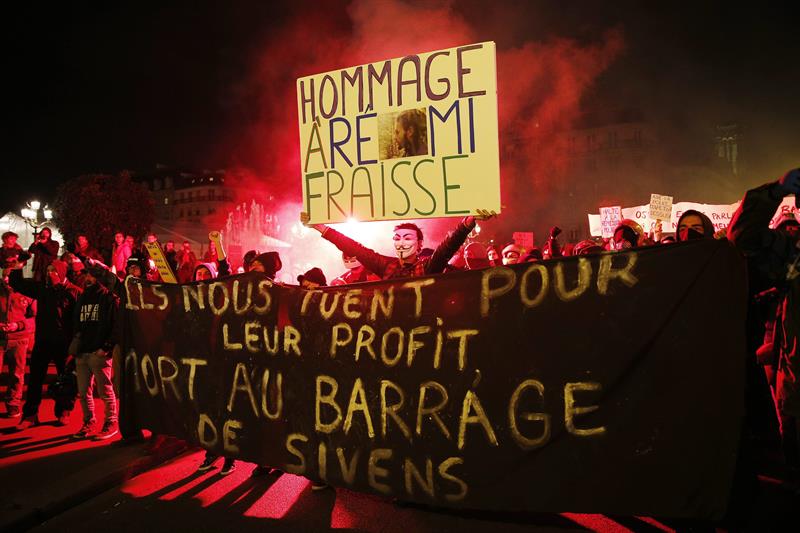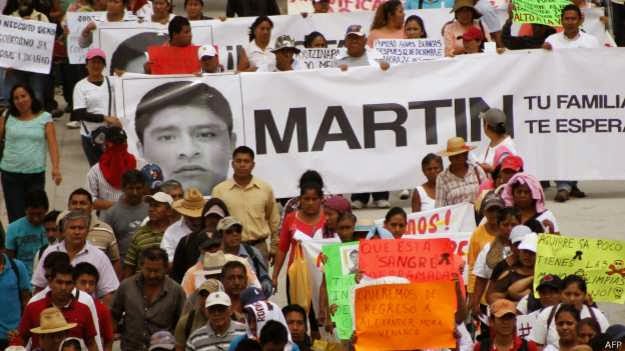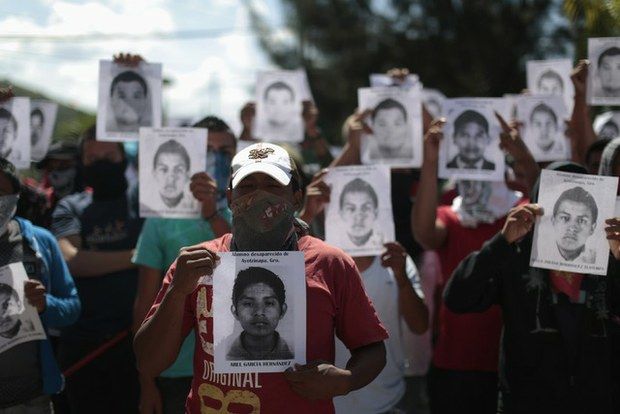Brazil
São Paulo: A class-conscious policy is needed to give voice to the rejection of the political caste
28/06/2013
By LER-QI, Brazil
Sunday, June 23, 2013
On June 20, the demonstrations that have taken the country by storm, made a jump, bringing around 1 million people to the streets. In different cities, like in Rio de Janeiro and in Brasilia, the people’s anger was expressed, because of the dreadful living conditions, and against the privileges and abuses shamelessly maintained by the political caste that is sucking out the country’s resources for its own benefit. We reaffirm that we condemn the chorus that all the bourgeois media make up, and the representatives of their state, that calls the groups that express their anger “vandals,” separating them from the demonstrators.
Therefore, as revolutionaries, we understand that these actions express the anger against the PT, PSDB and PMDB governments, that run most of the big cities of the country. And also that these displays of revolt show that the population is beginning to wake up from the dream peddled by the government and the bourgeoisie, of consumption on credit, and of “Brazil as a power,” and giving back, through the demonstrations in the streets, the anger from living and feeling on one’s skin, every day, the real Brazil: of job uncertainty, repression and police violence, of the systematic murder of black young people and of the poor, and the abuses from the political caste of the bourgeois parties.
The organizations of the left were again present, since they have been in the struggle from its beginning, as the MPL itself, openly non-partisan, claimed today in its public note. From the beginning, the LER-QI has promoted the struggle, by fighting not only for the reduction of the fares, but for an entire program, that could, in fact, resolve the demands of the workers and of the majority of the population. We raise our banner in defense of the free ticket for young people, unemployed workers, and retirees. For the nationalization of mass transit, under workers’ control, that will be financed by progressive taxes on the great fortunes and with what is now being spent on supporting the parasitic caste of bourgeois politicians.
For the end of the high cost of living, by imposing the Diesse minimum wage, that will be readjusted in accordance with the increase of the cost of living. Let each executive official, the politicians and judges earn the same as an average worker. With these banners we marched yesterday on Paulista Avenue. And it is clear that those demands can only be realized with the entry on the scene of the working class as a subject, in alliance with the vast majority of the exploited and oppressed population. We will continue in struggle for this policy, which is the only one that can provide the movement that is going across this country, with a strategy of the workers and the people, able to overthrow this caste of politicians that govern solely for themselves and the rich.
In São Paulo, the MPL had called a new demonstration to celebrate the conquest of the reduction of the fares. The bourgeois media, through the Globo Network, presented the action in São Paulo as “an example of civic action,” because no confrontations with the police had taken place there, in contrast to what happened in cities like Rio de Janeiro or Brasilia. But it wasn’t like that. A non-partisan feeling that was led in a vague and hardly class-conscious manner against the policy of the bourgeois parties on duty, was manipulated by organized right-wing groups. Organized groups of traditionalist, neo-nazi, and ultra-right sectors, that attack homosexuals, blacks and leftist activists, and that represent a negligible minority of those who are demonstrating, joined other groups that were calling for a reduction in the age of legal minority, and they incited hostile action against the leftist organizations present there, trying to provoke a physical confrontation.
It is also necessary to know how to separate the national sentiment of the workers from right-wing nationalism. As Leon Trotsky says in the Transitional Program:
“When the small farmer or the worker talks about defense of the fatherland, they are talking about defense of their home, of their family, and other families against the invasion of the enemy, against bombs and against gas attacks. By defense of the fatherland, the capitalist and his journalism understand the conquest of colonies and markets, and the increase, by pillage, of the “national” share in the world income. Patriotism and bourgeois pacifism are complete lies. In pacifism, just as in the patriotism of the oppressed, there are elements that reflect, on the one hand, a hatred of destructive war and, on the other hand, their attachment to what they believe is their interest. We need to use these elements to deduce the necessary revolutionary conclusions. It is necessary to know how honestly to oppose these two forms of pacifism and patriotism. Proceeding from these considerations, the Fourth International supports every demand, even if insufficient, if it is capable of bringing the masses, even to a slight degree, to more active politics to awaken their criticism and strengthen their control over the machinations of the bourgeoisie.”
Therefore, we cannot say that all those who now wrap themselves in the national flag are fascists. Class distinctions also exist there. To put a wedge between groups of the middle class, and even of the workers, that adopt the common anti-party sense, motivated by widespread dissatisfaction, from those who represent the political right wing, is a key task of the workers and their organizations.
At this time, the correct policy is precisely to be on the offensive in setting up organizations and assemblies for places of work and study, that will organize the entry on the scene of the workers as a subject that will add, behind itself, the demands of all the exploited and oppressed groups. Groups like these, that are now fighting against the Nasciturus statute, the approval of the “Gay Cure” project. Like the unemployed workers and groups of the poor that demonstrated in the court of M`Boi Mirim Street. The left must get united against the attacks from the right-wing groups and programmatically discuss the policy to be defended. And, especially, it must call stoppages and strikes by the groups of workers where they are active, like beginning with Conlutas and the Intersindical, since it is not possible that the union confederations led by the left will remain behind the Força Sindical that called a march of the metal workers.
It is necessary to demand that the CUT also do that. The workers and the young people must show the difference between the policy of the bourgeois parties and that of the revolutionary class-conscious parties, by proving that the revolutionaries are the only ones that can put an end to the parasitic political caste. They must discuss and put into actions an entire program, that will be able to give a progressive and revolutionary direction to the people’s fury that is being expressed in the country. They must show through their class strength what those groups of the ultra right really are: an opportunist minority that seeks to capitalize on the rejection of the bourgeois parties on duty, from the right. This is the time to promote class conscious and revolutionary politics!
We are not lowering our banner, since it is against the police and the boss!
Translated by Yosef M.


![Declaration of the Movimiento de los Trabajadores Socialistas [MTS] facing the brutal murder and disappearance of the normalistas students of Ayotzinapa](http://www.ft-ci.org/IMG/arton8590.jpg?1687978277)











